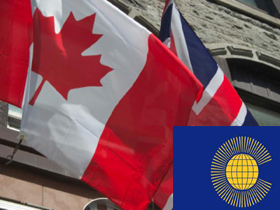Foreign countries except India continued expressing their displeasures over Sunday’s election results and laid emphasis on political dialogue shunning violence to have a truly participatory election in the future.
The countries condemned the election-centric killings and violence but encouraged all parties to reach an agreement soon and mentioned that a mutually agreed way forward will allow the next election to be truly participatory with an outcome that all Bangladeshis will see as credible.
Considering Bangladesh as their important development partner, they suggested all the political parties in Bangladesh to act in line with the interests of the people of Bangladesh keeping Bangladesh’s economy unhurt through ensuring political stability.
They also suggested political parties to look beyond their immediate political concerns and work cooperatively to focus nationally on Bangladesh’s development and its bright future.
Commonwealth, a body of 53 independent countries; India, the United Kingdom (UK) and Canada have so far issued statements commenting on the Bangladesh elections.
Terming the elections a constitutional requirement, Bangladesh’s close neighbour India reiterated its position saying the people of Bangladesh will decide their own future.
“Elections in Bangladesh on 5th January were a constitutional requirement. They’re a part of the internal and constitutional process of Bangladesh,” said Syed Akbaruddin, the spokesperson of the Ministry of External Affairs, India.
He made the remark in response to questions on elections in Bangladesh which was boycotted by the BNP-led 18-party alliance.
Akbaruddin also said it is for the people of Bangladesh to decide their own future and choose their representatives in a manner that responds to their aspirations.
Apparently expressing India’s displeasure on the election-centric violence, he said, “Violence cannot and should not determine the way forward.”
He also said the democratic processes must be allowed to take their own course in Bangladesh.
Voicing its displeasure over low turnout of voters, the UK urged the ‘new government’ and all political parties in Bangladesh to act in line with the interests of the people of Bangladesh.
“Bangladesh is an important partner for the UK and we continue to support its people in their aspirations for a more stable, prosperous, and democratic future,” said Baroness Warsi, British Senior Foreign Office Minister, commenting on the election results.
The British Minister, who visited Dhaka twice before the election, however, expressed her displeasure as voters in more than half the constituencies did not have the opportunity to express their will at the ballot box.
“…it’s therefore disappointing that voters in more than half the constituencies didn’t have the opportunity to express their will at the ballot box and that turnout in most other constituencies was low,” Warsi said.
Warsi said the UK has noted the announcement of the results of the 10th parliamentary elections in Bangladesh; ‘an election called in accordance with Bangladesh’s Constitution.’
Expressing its ‘extreme disappointment’ over the election results, Canada urged all to reach an agreement soon to allow the next elections to be ‘truly participatory’ welcoming major political parties’ willingness to consider holding a new national election.
“Canada urges all parties to reach an agreement soon that would allow the next election to be truly participatory, with results that all Bangladeshis will see as credible,” said John Baird, Canadian Foreign Affairs Minister, in a statement.
Canada also called on all parties to look beyond their immediate political concerns and work cooperatively to focus nationally on Bangladesh’s development and its bright future.
On the adverse impact on economy in absence of political stability, the Canadian Minister said political instability has bred economic instability, which has caused long-term damage to Bangladesh’s economy and may continue to do so. “We fear that this damage has undermined Bangladesh’s economic progress and developmental path,” he said.
The Commonwealth also expressed its disappointment over limited participation and low voter turnout in Bangladesh elections and encouraged dialogue among political parties for a more inclusive and peaceful political process.
“The limited levels of participation and the low voter turnout are disappointing,” said Kamalesh Sharma, Commonwealth Secretary-General, in a statement.
Therefore, Sharma said, it is critical that Bangladesh moves quickly to find a path forward through dialogue to a more inclusive and peaceful political process in which the will of people can be fully expressed.
Sharma, however, said the Commonwealth remains ready and willing to assist Bangladesh in advancing democratic cultures and processes, freedom of expression, the rule of law and other shared core values, “just as we offer this support to all our member countries”.
Awami League won absolute majority in the national election that was marked by massive violence and low turnout amid boycott by the opposition alliance.
So far, 24 people were killed in last two days — 19 on Sunday and five on Monday — over the national election.
Source: UNBConnect

